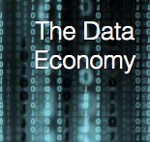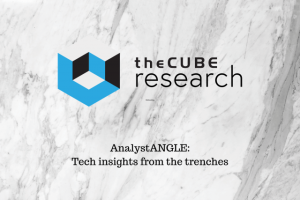Enterprises, governments, academic institutions, non-profit organizations, consumers and citizens have access to more data in the second decade of the 21st than anyone could have imagined just 10 or 20 years ago. From traditional data sources like corporate databases and applications to non-traditional sources like social media, mobile devices and machines outfitted with data-generating sensors, data volumes are exploding and show no signs of abating. The total worldwide volume of data is expected to reach 6.6 zettabytes by 2020.
Simultaneously, an entirely new market of technologies and services called Big Data has taken shape over the last five years to help organizations capture and and extract real value from all that data. As Wikibon has documented, the Big Data market is growing at a considerable pace itself, with vendor revenue from Big Data technology products and services reaching $11.6 billion in 2012. By 2017, Big Data vendor revenue will hit close to $50 billion, according to our models.
While 6.6 zettabytes and $50 billion are impressive figures, they are only part of the story. The real value from Big Data will come from enterprises and organizations across vertical markets — from oil & gas and financial services to healthcare and consumer products — that now have the tools at their disposal to make innovative use of data to drive high-value business and societal outcomes. Data and technology are simply enablers. It’s how we as an society, from individual companies to entire markets, put both data and technology to work that will drive real value creation and define the new Data Economy.
So just what is the Data Economy? It is the emerging economy in which organizations succeed or fail based in large part on their ability to leverage data and analytics to improve operational efficiencies, to make better tactical and strategic decisions, and to create innovative products, services and business models to meet & exceed customer expectations. It is also a connected economy in which partners and competitors alike share data and integrate business processes where the resulting benefits to overall markets, the enterprises themselves and customers outweigh the risks of such collaboration.
We have already begun to see the Data Economy take shape. Companies like Google, Yahoo and Facebook were among the first to truly understand the potential benefits of harnessing Big Data, resulting in online applications such as Web search and social networking that changed the way we find information and connect with one another. More recently, start-ups like Spotify, Airbnb and Foursquare are building on this foundation to reinvent other consumer services like music, travel and retail through intelligent use of data.
Not surprisingly, these early data innovators come from the Web sector. By working with data all day everyday, they were in a better position than most to recognize its potential value. But the innovative use of data is on the verge of exploding into the larger economy. This is happening now because of the reasons cited above (plentiful data + enabling technology), but also because business leaders across industries are finally buying into the transformative power of the connected and intelligent enterprise.
These business leaders, such as GE’s Jeffrey Immelt and Wal-Mart’s Mike Duke, recognize that in order to compete in this new and emerging world enterprises must wring as much value from the data available to them as possible. To expand on Wikibon’s definition above, in the Data Economy, enterprises will succeed or fail based on how well they leverage data to:
- Improve operational efficiencies;
- Make better tactical and front-line decisions;
- Make better strategic and “big picture” decisions;
- Automate real-time business processes;
- Manage risk, security and privacy; and,
- Collaborate and co-innovate with partners and competitors,
This innovation will manifest itself in a number of ways. In some cases, enterprises are leveraging the flexibility made possible by new data processing and analysis technologies to improve existing business processes, resulting in higher worker productivity and more efficient operations. In others, enterprises will fundamentally reinvent themselves and entire markets by creating new data-driven business models in which the analysis and dissemination of data is itself the product.
But the Data Economy refers to much more than any one enterprise or organization making better use of data. Discreet use cases and applications of Big Data must be part of a larger whole. In the Data Economy, entire industries will operate and markets function all through the intelligent use and sharing of data. Eventually companies in various industry sectors will need to orchestrate multiple applications to work intelligently together with the goal of optimizing entire operational environments.
Take the energy sector, for example. In the Data Economy, energy producers will leverage the data emanating from individual wind turbines and power generators to optimize their operations and reduce downtime. Data from multiple generators in a single plant will be merged and analyzed to ensure energy is being produced efficiently at the plant level. Plant-level data from multiple providers can then be integrated an analyzed to better understand regional demand and optimize the performance of the larger energy grid.
Innovative enterprises will use data to disrupt long-established markets in these and many other ways, and countless new methods will be developed in the coming years. The technologies that support this innovation and disruption are obviously critical to the Data Economy. But the majority of net-new value created by the Data Economy will come from enterprises and organizations who create value for themselves, for their partners (and even competitors), for their customers, and for society at large.
In order to make the transition to the Data Economy, companies must invest in three critical areas: technology, people, and culture.
- Technology: This is the easiest of the three. Enterprises must invest in new technologies and processes that enable the ability to ingest, analyze, and act on streaming data from all manner of sources in real time and develop closed-loop feedback systems to continually optimize business processes, while simultaneously supporting deep, historical analytics capabilities to identify strategic insights. Other enabling technologies includes social/collaboration software that allow people to connect with one another and share data, mobile technology to enable workers to access analytics and information when and where it is needed, and cloud technology to allow geographically dispersed workforces access common data sources.
- People: Enterprises in the Data Economy must invest time and resources in hiring and cultivating workers who possess the required skills to extract value from data. This includes IT workers who understand distributed systems such as Hadoop and MapReduce; Data Scientists and business analysts adept at data mining, statistics and predictive analytics; and data-savvy line-of-business workers proficient in tools like Excel, business intelligence applications and data visualization to communicate insights. Enterprises should also consider establishing positions such as Chief Data Officer and Chief Analytics Officer, whose role is to oversee the governance, analysis and monetization of data within the enterprise.
- Culture: Adapting corporate culture to the Data Economy is the most difficult of the three investment areas. To thrive in the Data Economy, data must be viewed as a strategic asset in the enterprise. Old ways of operating and making decisions must be reconsidered. Inquisitiveness and questioning long-held assumptions must become part of the normal course of business. Enterprises must make data-driven decision-making the default approach to problem solving. This is a relatively easy exercise at Web companies and start-ups but is much more difficult in industries that have been “doing things a certain way” for decades. It requires buy-in from the top of the enterprise. C-level executives must lead by example, embracing data-driven decision-making as the basis for corporate strategy and direction.
Action Item: Enterprises should begin investing in the technology, people and culture that will enable success in the emerging Data Economy. Understand that change is inevitable in the Data Economy, and be prepared to adapt the tools, technologies, processes and approaches used while maintaining a laser-like focus on leveraging data to drive efficiencies and innovation.
Footnotes:


